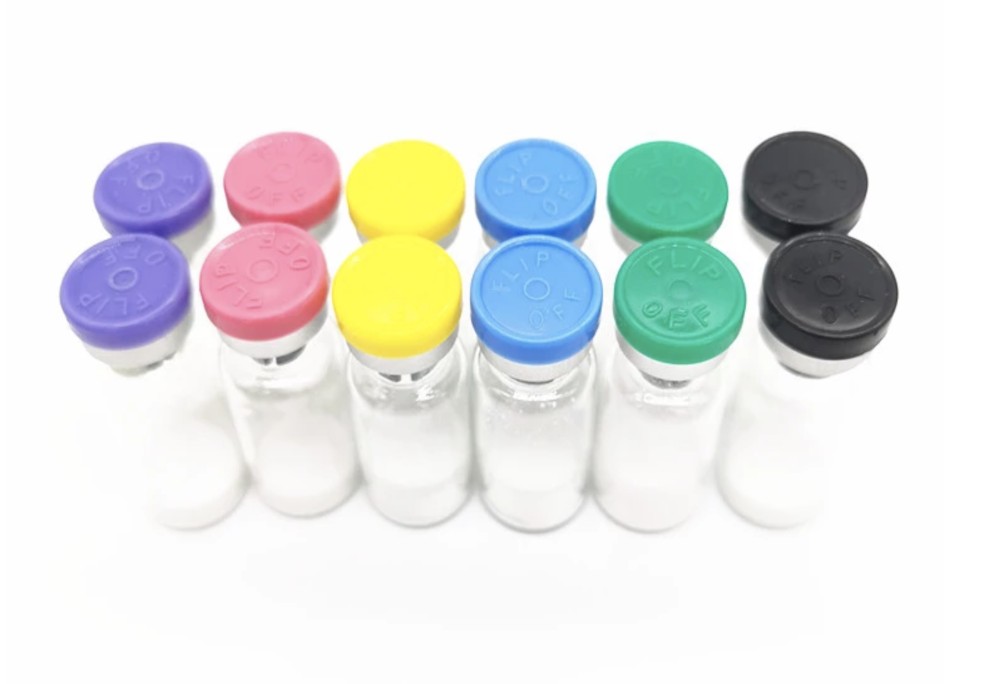Octreotide
Alias:Octreotide Acetate,Sodium deoxyribose guarylic acid,Acetic octreotide,Octreotide,Sandostatin
CAS No. : 79517-01-4
Purity (HPLC) : 98.0%min.
Molecular Formula : C51H70N10O12S2
Molecular Weight : 1079.3
Appearance : White powder
Octreotide (brand name Sandostatin, Novartis Pharmaceuticals) is an octapeptide that mimics natural somatostatin pharmacologically, though it is a more potent inhibitor of growth hormone, glucagon, and insulin than the natural hormone. It was first synthesized in 1979 by the chemist Wilfried Bauer.The Food and Drug Administration (FDA) has approved the usage of a salt form of this peptide, octreotide acetate, as an injectable depot formulation for the treatment of acromegaly, the treatment of diarrhea and flushing episodes associated with carcinoid syndrome, and treatment of diarrhoea in patients with vasoactive intestinal peptide-secreting tumors (VIPomas).
Octreotide has also been used off-label for the treatment of severe, refractory diarrhea from other causes. It is used in toxicology for the treatment of prolonged recurrent hypoglycemia after sulfonylurea and possibly meglitinides overdose. It has also been used with varying degrees of success in infants with nesidioblastosis to help decrease insulin hypersecretion.
Octreotide has been used experimentally to treat obesity, particularly obesity caused by lesions in the hunger and satiety centers of the hypothalamus, a region of the brain central to the regulation of food intake and energy expenditure. The circuit begins with an area of the hypothalamus, the arcuate nucleus, that has outputs to the lateral hypothalamus (LH) and ventromedial hypothalamus (VMH), the brain's feeding and satiety centers, respectively. The VMH is sometimes injured by ongoing treatment for acute lymphoblastic leukemia (ALL) or surgery or radiation to treat posterior cranial fossa tumors.






















